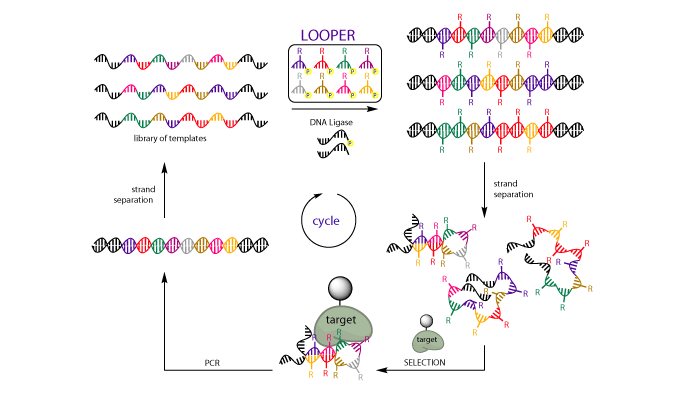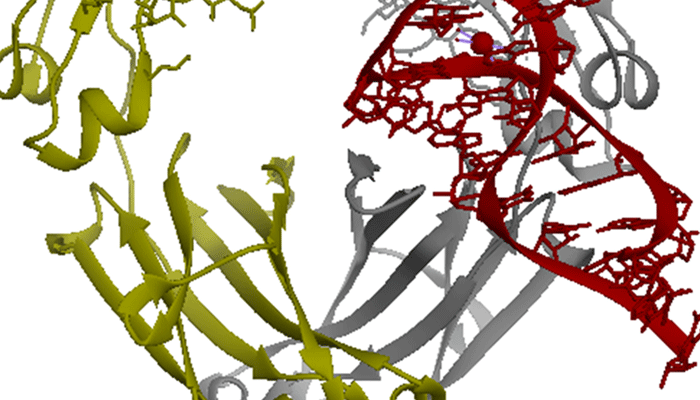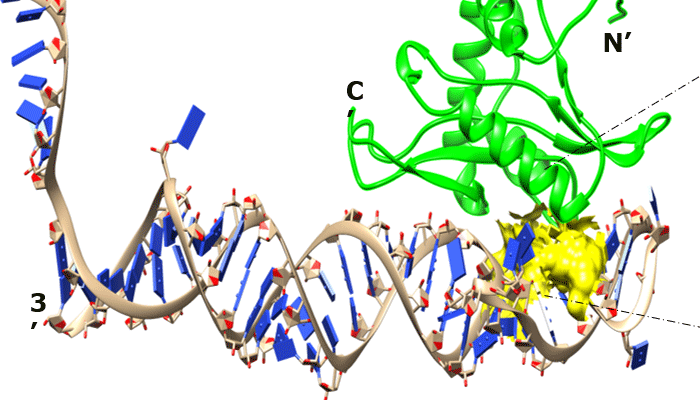
Ligase-Catalyzed Oligonucleotide Polymerization (LOOPER): Evolution of chemically diverse aptamer libraries
REVIEW
![]()
ISSN: 2514-3247
Aptamers (2021), Vol 5, 22-30
Published online: 02 November 2021
Full Text (Movahedi ~2633kb) (PubMed Central Record HTML) | (PubMed) | (References)
Matina Movahedi, Natalie Khamissi and Ryan Hili*
Department of Chemistry and Centre for Research on Biomolecular Interactions, York University, Toronto, Ontario, Canada, M3J 1P3
*Correspondence to: Ryan Hili, Email: rhili@yorku.ca
Received: 29 August 2021 | Revised: 27 October 2021 | Accepted: 29 October 2021
© Copyright The Author(s). This is an open access article, published under the terms of the Creative Commons Attribution Non-Commercial License (http://creativecommons.org/licenses/by-nc/4.0). This license permits non-commercial use, distribution and reproduction of this article, provided the original work is appropriately acknowledged, with correct citation details.
ABSTRACT
Expanding the chemical diversity of oligonucleotide libraries has allowed the evolution of synthetic nucleic acid polymers with enhanced molecular recognition and catalysis. Thus, methods that enable the sequence-defined incorporation of diverse chemical modifications are of particular importance in developing novel or improved nucleic acid polymers for diagnostics and therapeutics. In this review, we discuss the development of ligase-catalyzed oligonucleotide polymerization (LOOPER) as a method to increase the chemical diversity of oligonucleotide libraries, and its application towards the evolution of modified aptamers. An evaluation on the use of different ligases, scope and number of modifications, sequence space, and evolutionary outcomes from in vitro selections is provided, along with a critical lens on challenges to be addressed for the method to mature into a more widely adapted technology.
KEYWORDS: aptamers, ligase, ligase-catalyzed oligonucleotide polymerization, chemical diversity, molecular evolution, in vitro selection



